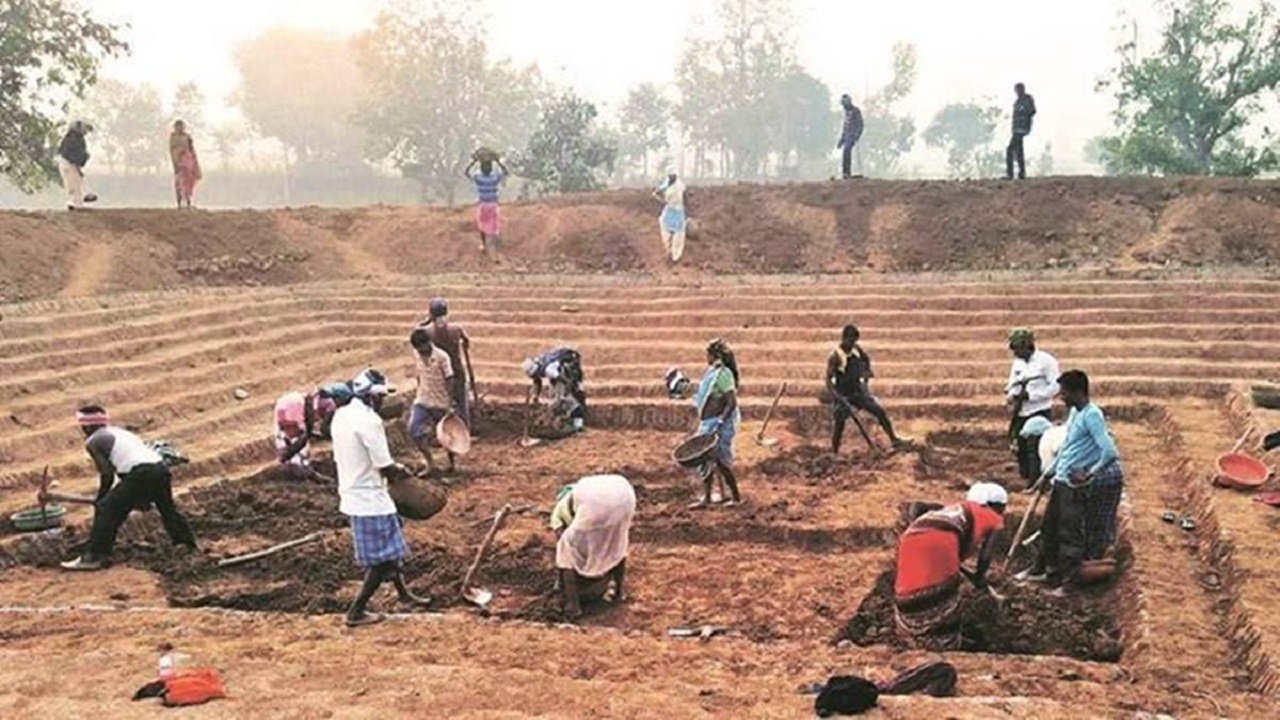MGNREGS Under Fiscal Discipline: Legal and Social Implications
Context
The Union Finance Ministry has, for the first time, imposed a spending cap on the Mahatma Gandhi National Rural Employment Guarantee Scheme (MGNREGS), limiting expenditure to 60% of its total annual allocation for the first half of the financial year 2025–26. This demand-driven rural employment scheme, enacted under the MGNREG Act, 2005, is now subject to the Monthly/Quarterly Expenditure Plan (MEP/QEP), raising concerns about legal, operational, and constitutional implications.
MGNREGS Under Monthly/Quarterly Expenditure Plan (MEP/QEP)
. MGNREGS has been brought under MEP/QEP, a spending control mechanism introduced in 2017.
. MEP/QEP is used by government departments to monitor, forecast, and control spending in a phased manner in line with budget allocations.
. Previously, MGNREGS was exempt from these restrictions due to its legally guaranteed, demand-driven nature.
Rationale Behind the Spending Cap
. Historically, over 70% of the MGNREGS budget is exhausted by September, forcing the government to allocate supplementary funds in December, which are typically depleted by January.
. In the last five years, pending dues at the end of each year have ranged from ₹15,000 crore to ₹25,000 crore.
. On average, 20% of the following year’s budget is used to clear these pending liabilities.
. The Finance Ministry aims to regulate expenditure through MEP/QEP and avoid sudden fiscal pressure caused by mid-year fund shortages.
Financial Snapshot (FY 2025–26)
. Total MGNREGS Budget: ₹86,000 crore
. Funds Released (as of June): 28%
. Pending Dues from FY 2024–25: ₹19,200 crore
. Pending Dues in FY 2025–26 (as on June 12): ₹3,262 crore
Key Issues Arising from the Spending Cap
Fluctuating Nature of Rural Employment Demand
. MGNREGS demand typically peaks during April–June (lean agricultural season) and post-Kharif in September.
. Demand is also influenced by irregular climatic events such as delayed monsoons and droughts.
. In 2023, deficient rainfall led to a 20% increase in demand during July–August.
. Due to severe drought, Karnataka exhausted over 70% of its MGNREGS budget within six months.
. A fixed 60% cap fails to accommodate such demand surges, undermining the scheme’s role as a rural safety mechanism.
Violation of Statutory Provisions and Legal Guarantees
. MGNREGS is a rights-based law under the MGNREG Act, 2005, not a welfare scheme that can be modified at will.
. Section 3 of the Act guarantees employment within 15 days of demand.
. Schedule II, Paragraph 29 mandates wage payment within 15 days of completion of work.
. Capping expenditure restricts the state’s ability to fulfil these obligations, potentially violating the Act.
Judicial Safeguards and Constitutional Position
. Indian courts have consistently ruled that budgetary constraints cannot be used to justify the failure to uphold statutory and constitutional duties.
. Key judicial precedents include:
. Swaraj Abhiyan v Union of India (2016)
. Municipal Council, Ratlam v Vardhichand (1980)
. Paschim Banga Khet Mazdoor Samity v State of West Bengal (1996)
. These judgments reinforce that welfare obligations cannot be compromised on financial grounds.
Lack of Post-Cap Clarity and Legal Risk
. The government has not clarified what will happen once the 60% ceiling is reached.
. Two potential outcomes arise:
. States may deny employment even when there is genuine demand.
. Workers may be engaged but not paid on time, leading to wage delays.
. Both outcomes risk violating legal provisions of the MGNREG Act.
Existing Implementation Challenges May Worsen
. MGNREGS already suffers from wage delays, non-payment of unemployment allowance, and inadequate compensation.
. The Supreme Court has acknowledged these systemic issues in earlier proceedings.
. The current spending cap could aggravate these problems rather than resolve them.
Conclusion
While the spending cap aims to enforce fiscal prudence, it may dilute the core intent of the MGNREG Act, which is to provide timely and legally guaranteed employment and wages to rural households. The policy raises serious concerns related to statutory compliance, rural livelihoods, and constitutional accountability. For UPSC aspirants, this development is a crucial example of the tension between fiscal management and welfare entitlements under a rights-based legal framework.




Comments (0)